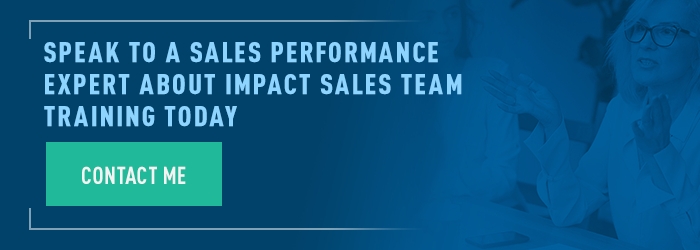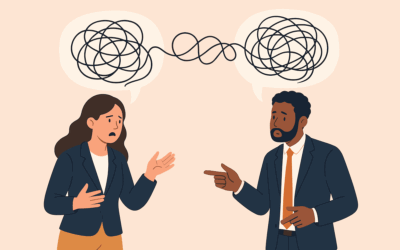Effective sales training is a critical component of sales success, whether your team is full of seasoned professionals, brand new graduates, or a diverse mix of skills and experience levels.
When it comes to training new employees, the Sales Training 101 course may be one of the most important investments you make. Yet it’s also an area of training where many organizations make big mistakes that cost them in both the short-term and the long run.
Here’s what you need to know to ensure the sales training you offer your team, from Sales Training 101 all the way to advanced sales techniques, provides them with the benefits you expect and gives you the ROI you need.
What is Sales Training 101?
For the purposes of this article, Sales Training 101 refers to foundational sales training that gives your team the primary skills and knowledge they need to competently do their work.
It will generally include training in your sales process and methodology, as well as essential skills such as effective qualifying, asking probing questions, communicating value, and differentiating products and services. It may also include introductions to the specific products and services your organization offers.
Sales Training 101 is usually offered to new hires, and may include ongoing training with seasoned employees to keep them refreshed and up to date on the essential elements of your selling environment.
Common Mistakes in Sales Training 101
The biggest mistake organizations make when choosing a Sales Training 101 course is treating it as though any basic sales training will do. This attitude arises from the idea that foundational sales training skills are the same across the board, and that new salespeople all need to master the same skills as everyone else.
It’s a tempting idea in part because off-the-shelf and one-size-fits-all sales training programs can be cheaper in the immediate term. Unfortunately, they will ultimately cost your organization more in the long term. Here are a few of the costs of this mistake:
- High turnover, when salespeople don’t get the customized support they need and “flunk out” unnecessarily
- Lack of adherence to the training, because salespeople don’t see its relevance to their daily workflow and challenges
- Slow onboarding, because it takes salespeople longer to adapt what they’re learning to the actual environment you’ve placed them in
- Poor performance, because the training doesn’t “stick”
Your Sales Training 101 is the foundation on which your people will build their success and, in turn, yours. It pays to invest in doing it right.
How to Achieve Maximum Impact with Your Sales Training 101
Your people, selling environment, culture, and challenges are all unique. Your Sales Training 101 should be too. When your sales training is customized to fit the unique needs and environment of your sales team, you’ll experience faster onboarding times, better retention and performance, and higher ROI on your training and other investments.
To achieve maximum impact with your Sales Training 101, choose a sales training partner that will deeply customize your sales training and partner with you in its delivery and reinforcement every step of the way. At minimum, they should engage in these four steps:
1. Discover
Expect them to consult with your stakeholders to learn what’s working well and what needs improvement. They should ride with salespeople to gather insight into the real challenges your people face on the ground. They should offer and administer talent assessments to establish baselines and set goals and milestones up front. Before going any further, expect them to work to establish consensus with your teams on the key objectives of the training.
2. Design
Ask prospective training partners whether they use the latest techniques in adult learning theory to design each team’s curriculum. The training should relate to their real needs and genuinely solicit and drive engagement and deep learning.
3. Deploy
Having engaged in the previous steps, your training facilitators should have a deep understanding of your industry, challenges, and the strengths and weaknesses of your team. Expect them to deploy your customized training using the latest interactive training tools, aids, and other resources to maintain engagement and keep your people eager to put their new skills to use.
4. Develop
Without coaching and reinforcement, most training is wasted time. Expect your training partner to provide customized coaching and reinforcement to improve team effectiveness after the training is complete. This may include sales coaching, gamified reinforcement technology, and other tools to keep your team engaged and to turn their new skills into habits.
What to Expect from a Great Sales Training 101 Partner
Your sales training partner should be your true partner before, during, and after training. They should be able to demonstrate a proven track record of ROI on training investment. And they must know how to deeply customize your training and partner with you and your team every step of the way.
This paragraph offers plenty of opportunities to link to existing content, such as articles on probing questions. Feel free to add more to the list, in order to include additional links.





